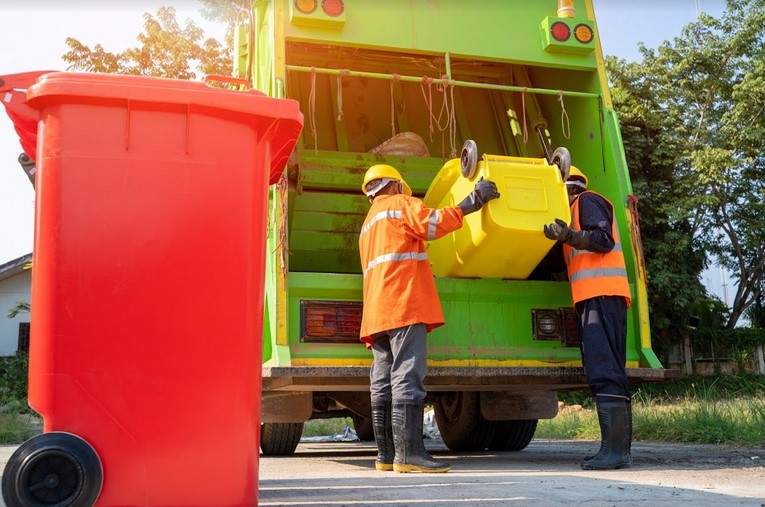The first step to efficient garbage disposal is understanding waste management. Waste management refers to the collection, transportation, rubbish removal, and disposal of garbage, sewage, and other waste products. It involves processes and actions committed to properly handling waste materials, from maintenance of waste transport vehicles and dumping facilities to compliance with health codes and environmental regulations.
Types of Waste
There are generally four types of wastes, which include solid, liquid, gaseous and hazardous wastes. Each type has different methods for disposal. For instance, solid wastes include common household trash while hazardous wastes could be toxic chemicals or substances. Understanding the type of waste helps in determining the correct disposal method.
Reduce, Reuse and Recycle
The principles of Reduce, Reuse and Recycle – often referred to as the 3 Rs – should be adopted for efficient waste disposal. Reducing consumption naturally leads to lower amounts of waste. On the other hand, reusing items or giving them a new purpose before throwing them out can extend their life cycle. Finally, recycling involves converting waste into reusable material, helping conserve resources.
Composting at Home
Organic kitchen scraps like vegetables peels and coffee grounds can be turned into compost at home with little effort. Compost not only reduces the amount of food waste going into landfills but also provides rich nutrients for your garden plants.
Proper Segregation of Waste
Waste segregation means dividing garbage according to its type. Doing so helps enhance the efficiency of recycling or disposal processes while helping reduce contamination risks during handling.
Hazardous Waste Disposal
Hazardous wastes demand unique handling protocols as per their potential risk to humans and environment. Thus residents have to ensure they are careful not to dispose such wastes indiscriminately.
Digitalizing to Minimize Paper Waste
Digitalizing documents hugely decreases paper usage thus reducing tree cutting for paper production. Less paper use fundamentally means less deforestation which contributes positively towards curbing global warming.
Bulk Buying Saves Packaged Products Waste
Buying goods in bulk often results in less packaging material used per unit of product hence less packaging waste generated per item purchased.
Donating or Selling Unwanted Items
Instead of throwing away items that are still in good condition but no longer needed, consider selling them online or donating those goods instead. It prevents usable goods from ending up in landfills unnecessarily.
Educating Others about Proper Waste Disposal Practices
In order for these tips to achieve maximum impact, it is important that we make an effort to educate others about proper waste disposal practices as well.
Conclusion: Long-term Benefits of Efficient Garbage Disposal
Applying these strategies will not only lead to effective waste management but also have a direct impact on our environment. By reducing waste generation through conscious consumption and recycling, we can alleviate the strain on landfills. Additionally, promoting the use of composting and biodegradable materials further minimizes the negative effects on our planet. Embracing sustainable practices and raising awareness about the importance of responsible waste disposal is essential in our journey towards creating a cleaner, greener future for generations to come. Together, we can contribute to the global ambition of achieving ecological sustainability and preserving our precious resources.





